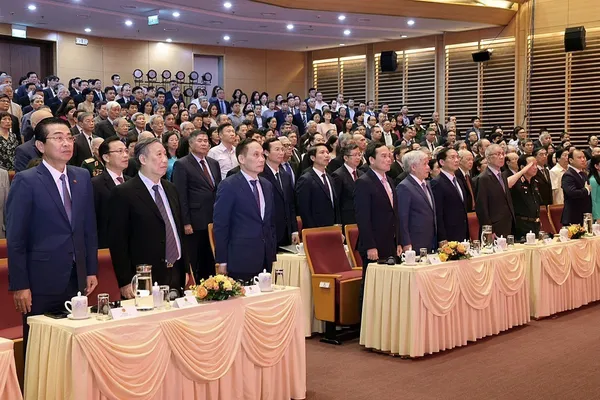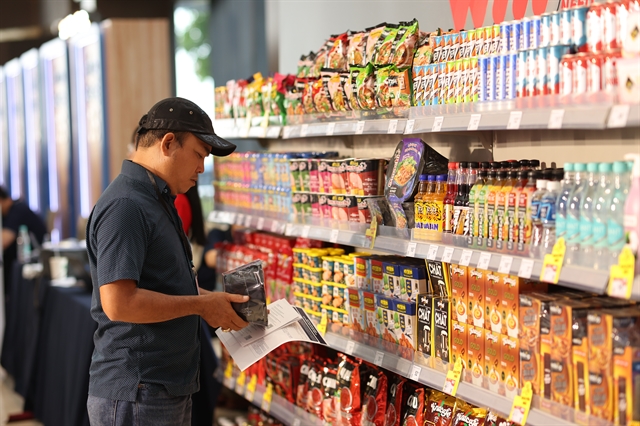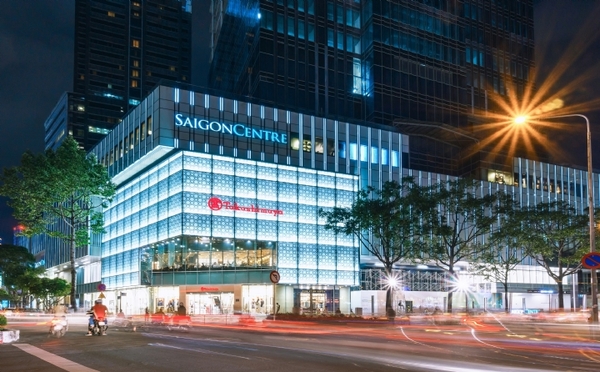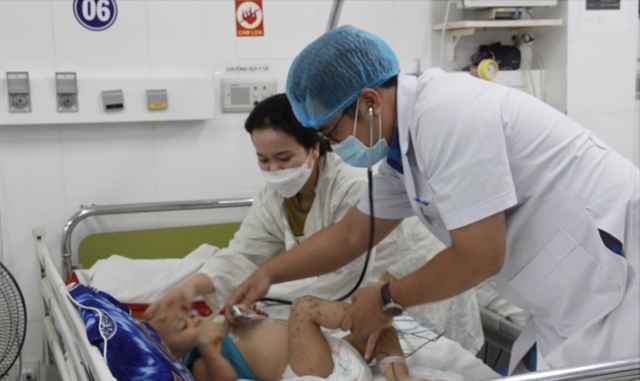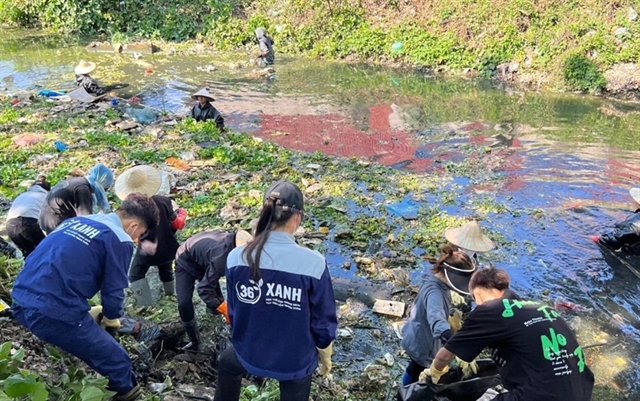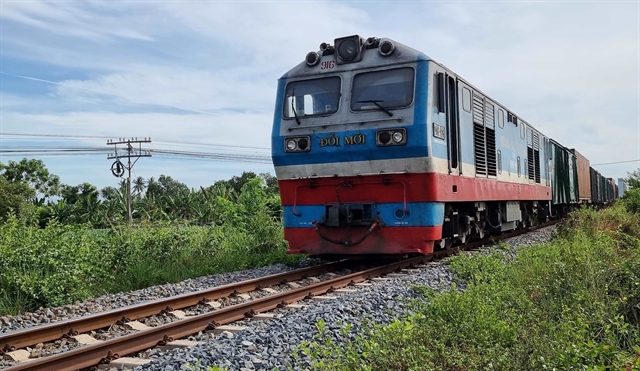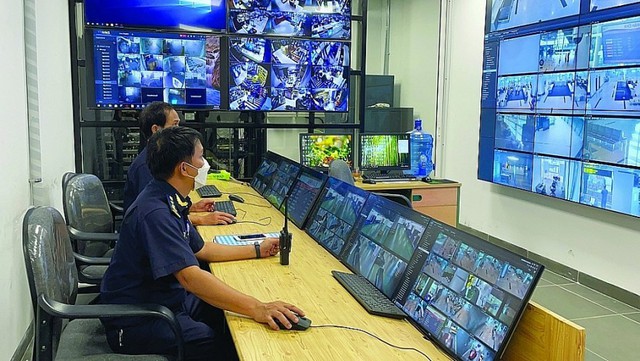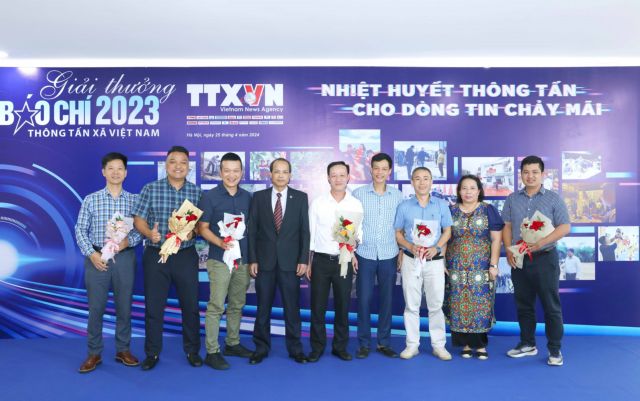 Society
Society

It was not until the current food safety havoc has the market realised a huge demand of Vietnamese customers for food of clear original, and the enterprises were quick to jump in the highly-potential agriculture sector which was used to be dominated by household farming only.
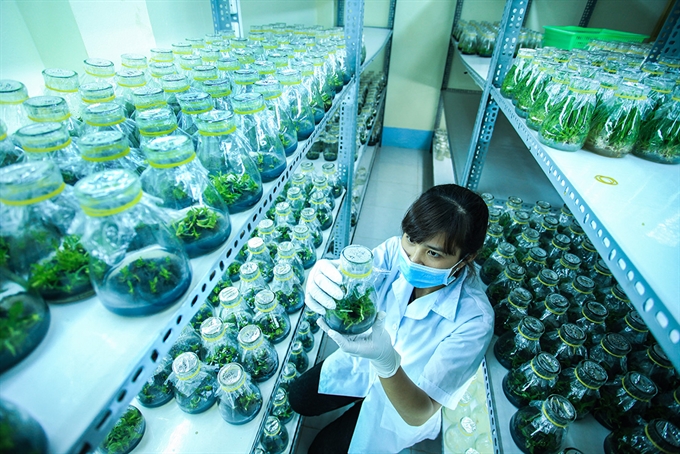 |
| Different plant species are grown at the Kiên Giang Province Agricultural-Forestry-Marine Breeding Centre. VNA/VNS Photo Trọng Đạt |
HÀ NỘI – It wasn’t until recent food safety concerns that the market recognised a huge demand among Vietnamese customers for food of clear original, and enterprises were quick to jump in the high-potential agriculture sector that used to be dominated by household farming.
VinGroup, one of the leading enterprises in the real estate sector with the famous Vinpearl resort brand, last year opened its first VinEco store, which provides clean vegetables by both national and international standards and applies advanced farming technologies from Japan and Israel. The chain quickly expanded in big cities and the group never hid its ambition to become “the driving force to change the Vietnamese mindset in doing agricultural business”.
If VinEco manages to keep its product quality high and stable, this goal might not be too far off from being realised, especially when the demand for clean food has rocketed in a couple of years.
A survey by the Institute of Policy and Strategy for Agriculture and Rural Development (IPSARD) in Hà Nội and HCM City shows that customers are ready to pay 30 per cent more for vegetables and pork if they have clear origins and are safe to eat.
In a traditional agricultural country like Việt Nam, however, identifying clear origins of food is difficult and sometimes impossible when basic foods - fresh vegetables, eggs, chicken, beef and pork - come from family farms producing small quantities before reaching customers on the market through local merchants.
However, this conventional method of food production and distribution caused the food safety issue to get out of hand, with many farmers – driven by benefits – abusing pesticides, preservatives, antibiotics and a number of banned chemicals to grow vegetables and beef up animals.
In addition, tonnes of smuggled food continued to flood the market every day. In 2015 alone, there were 5,000 cases of food safety violations resulting in fines, according to a report by the Government in its year-end meeting on the problem.
Business opportunities
IPSARD head Nguyễn Đỗ Anh Tuấn told Vietnamplus online newspaper that there have been more and more big enterprises jumping into the agricultural sector, which promises “quick payback”.
“Real estate, construction or steel producing used to attract business in the past,” he said. “But now agriculture is surfacing as a potential sector because of favourable natural conditions as well as cheap labour.”
In addition to VinGroup, a number of large enterprises that had never invested in agriculture before are now pouring money into the sector.
Hoàng Anh Gia Lai Group CEO Võ Hoàng Sơn said that the net benefit from selling cattle herds in the first quarter this year reached VNĐ133 billion (US$5.9 million), 46 per cent higher than the net benefit of all business fields from the same period last year at VNĐ91 billion ($4 million).
Steel manufacturing mogul Hòa Phát group last year set up a subsidiary company on breeding and animal feed with investment of about VNĐ2.5 trillion ($111 million), an attempt to gain a slice of the animal feed market pie worth more than $6 billion.
Social security at risk?
Enterprises joining the agricultural sector, bringing along with them advanced imported farming technologies and techniques, is the “unavoidable new trend”, said The Pan Group Chairman Nguyễn Duy Hưng.
Yet the trend might cause social security problems in an agricultural nation like Việt Nam, where nearly 80 per cent of the population – some 70 million people – are farmers, Hưng said.
“People used to say that applying advanced technologies will mean nothing for the farmers. Enterprises used those technologies to produce food and sell it to the market, directly competing with the farmers,” he said.
Hưng believes that Viêt Nam should start working on moving the farmers to different sectors; otherwise, labour instability is very likely to happen along with the new agricultural trend.
The Government, meanwhile, is pushing for more advanced farming techniques to be applied by farmers themselves to economically lift up rural areas.
In a conference to review the implementation of the Science and Technology Programme serving new-style rural areas in 2011-2015 held in the capital yesterday, Minister of Agriculture and Rural Development Cao Đức Phát said policies and sustainable methods should be devised, especially for remote and disadvantaged areas.
These efforts will accelerate the restructuring of agricultural production and push rural economic development, Phát said.
Head of the programme, Nguyễn Tuấn Anh, said the project will help to form technological application models with investment from enterprises, including at least 60 per cent of the models in the form of value chains from production to consumption, thus promoting socio-economic development in new-style rural areas.
Up to 105 technologies and 85 science and technology application models in agricultural production, as well as 50 enterprise-farmer models, have been established so far, benefitting about 5,000 farmer households from nearly 100 communes across the country. – VNS

